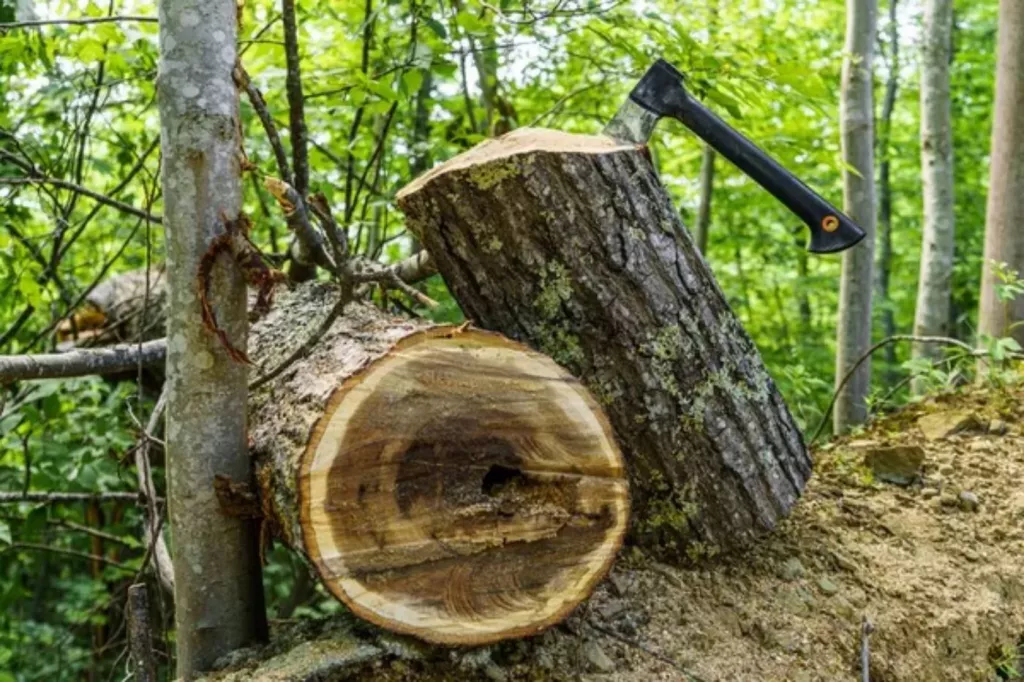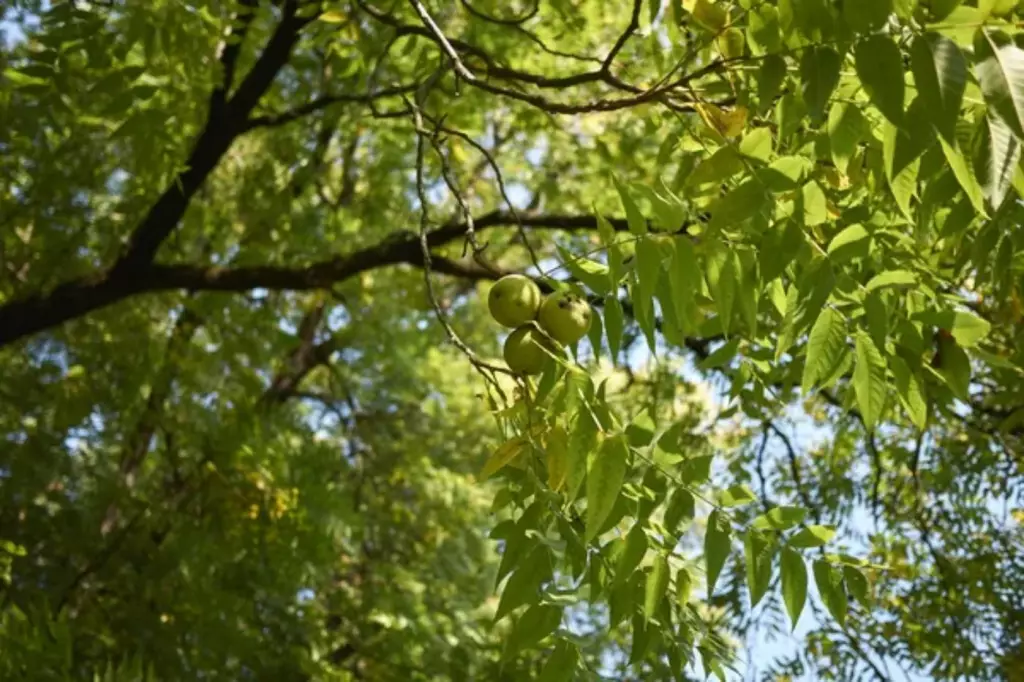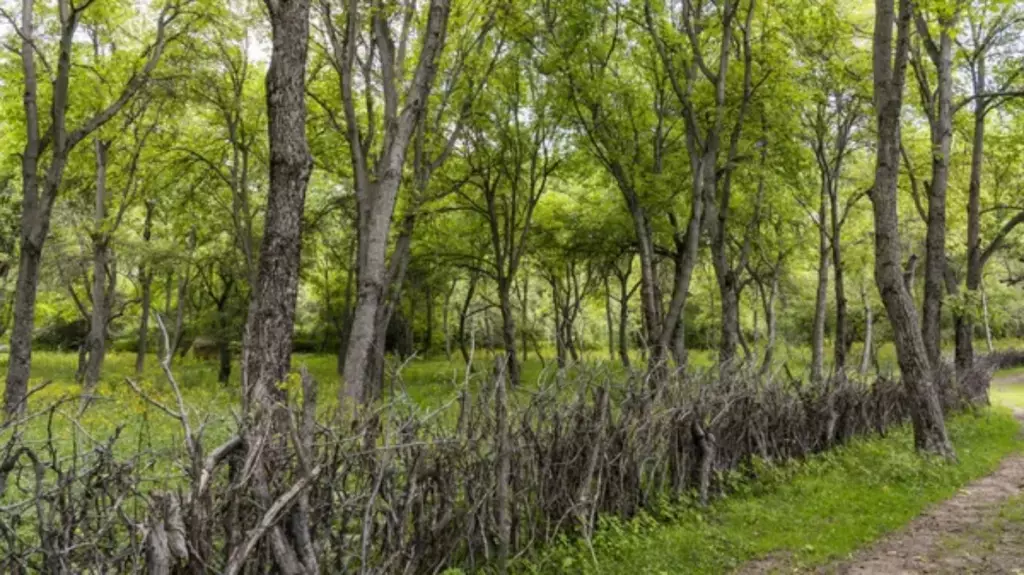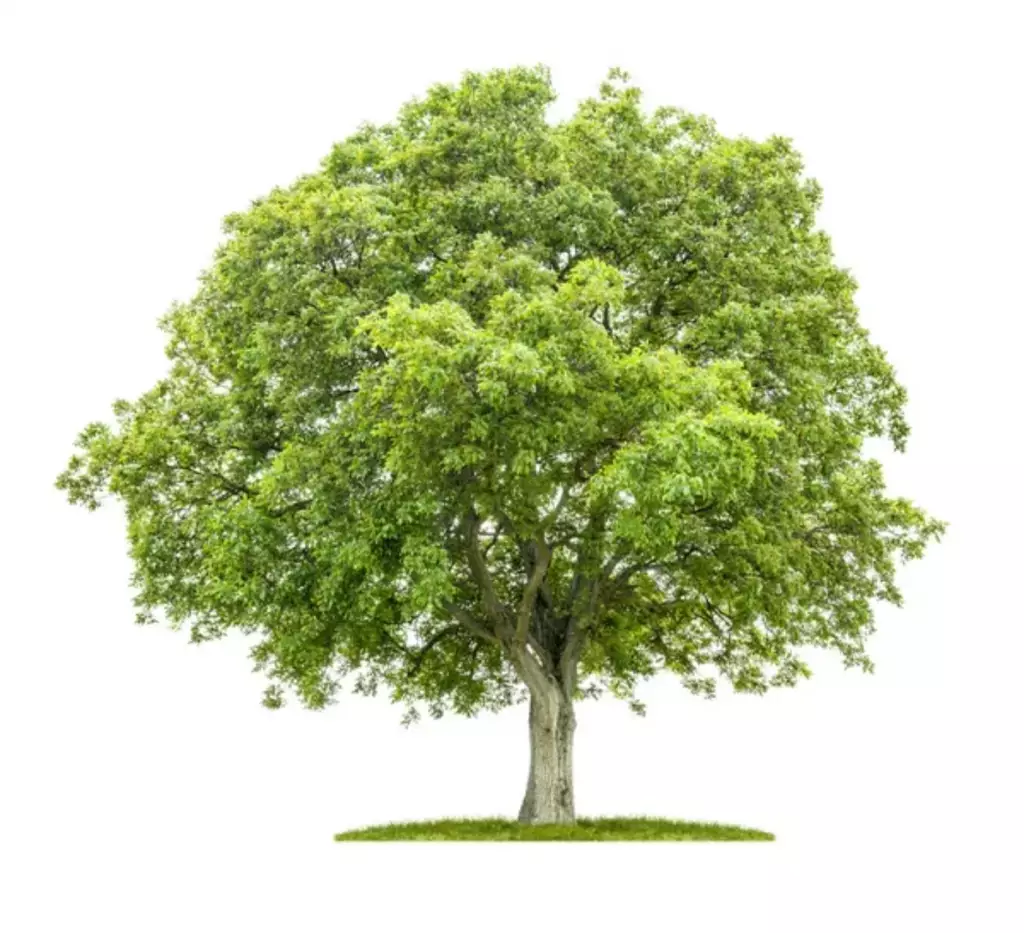Value of Black Walnut Trees (30-50-100 Years Old)
A mature, well-cared-for black walnut tree of about 20 inches in diameter can fetch prices between $700 and $800. However, the price can go much higher for older and larger trees with high-quality wood. In this article, we will explore the value of black walnut trees at different stages of growth, from 30 to 50 to 100 years old.
A 30-year-old black walnut tree may be worth around $500–$2,500, while a 50-year-old tree may be worth between $800 and $8,500. A 100-year-old tree can be worth up to $5,000—$55,000 or more. Generally, the older and larger the tree, the more valuable it is.
The quality of the wood is also an important factor, with straight-grained, knot-free wood being the most valuable. Let's see what other factors determine the value of black walnut trees.
Understanding the value of black walnut trees at various ages, from 30 to 100 years old, will be essential for forecasting the long-term financial growth and viability of your orchard, as you embark on starting a walnut farm from scratch.
Summary
- The average lifespan of a black walnut tree is around 150 years, but some trees can live for up to 300 years.
- If your black walnut tree has a lot of knots or defects, it may be worth less than a tree with straight, clear wood.
- Black walnut trees that are easy to access and transport will be more valuable than those that are difficult to reach.
- A 100-year-old black walnut tree can produce around 500 board feet of lumber, which, if sold at around $10 per board foot, could be worth around $5,000.

On this page:
Value of Black Walnut Trees
The table below shows the worth of a black walnut tree at different ages:
| Age of Black Walnut Tree | Estimated Value |
|---|---|
| 30 years old | $500 - $2,500 |
| 50 years old | $800 - $8,500 |
| 100 years old | $5,000 - $55,000 |
The Cost Of A 30-Year-Old Black Walnut Tree
The table below shows the different sizes of a 30-year-old walnut tree and their estimated value:
| Diameter (inches) | Height (feet) | Estimated Value |
|---|---|---|
| 11.5 | 25 | $500 |
| 15.3 | 35 | $1,000 |
| 19.1 | 50 | $2,500 |
| 22.9 | 60 | $4,000 |
| 26.7 | 70 | $6,000 |
| 30.6 | 80 | $8,500 |
Generally, a 30-year-old black walnut tree can be worth anywhere from $500 to $1,000 or more. An acre of black walnut trees consisting of 50 mature black walnut trees can bring $50,000 in total, which means one tree is worth $1,000.
If your black walnut tree has a lot of knots or defects, it may be worth less than a tree with straight, clear wood.
Additionally, if your tree is located in an area with high demand for black walnut wood, such as near a furniture factory or woodworking shop, it may be worth more than a tree in a less desirable location.

Note that the value of a black walnut tree can increase over time. As the tree grows and matures, its wood can become more valuable. It takes at least 25 years for a black walnut tree to properly come into maturity.
Therefore, if you have a 30-year-old black walnut tree that you plan to keep for a few more years, it may be worth even more in the future.
Worth Of A 50-Year-Old Black Walnut Tree
The table below shows the different sizes of a 50-year-old walnut tree and their estimated value:
| Diameter (inches) | Height (feet) | Estimated Value |
|---|---|---|
| 12 | 30 | $800 |
| 14 | 35 | $1,200 |
| 16 | 40 | $1,800 |
| 18 | 50 | $2,500 |
| 20 | 55 | $3,500 |
| 22 | 60 | $4,500 |
| 24 | 65 | $5,500 |
| 26 | 70 | $6,500 |
| 28 | 75 | $7,500 |
| 30 | 80 | $8,500 |
Generally, a 50-year-old black walnut tree with a diameter of 18 inches and a height of 50 feet could be worth around $2,500, but it can also be worth around $10,000 - $30,000 or more depending on several factors.
Trees with straight, clear trunks and few knots or defects are more valuable than those with crooked trunks or lots of knots. The wood from high-quality black walnut trees is used for furniture, flooring, and other high-end products, which can fetch a premium price.
Trees that are easy to access and transport will be more valuable than those that are difficult to reach. If your tree is located near a road or other easy access point, it may be worth more than a similar tree located deep in the woods.
Estimated Price Of A 100-Year-Old Black Walnut Tree
The table below shows the different sizes of a 100-year-old walnut tree and their estimated value:
| Diameter (inches) | Height (feet) | Estimated Overall Value |
|---|---|---|
| 18" | 60' | $5,000 - $7,000 |
| 24" | 80' | $12,000 - $15,000 |
| 30" | 90' | $20,000 - $25,000 |
| 36" | 100' | $30,000 - $40,000 |
| 42" | 110' | $45,000 - $55,000 |
A 100-year-old black walnut tree can produce around 500 board feet of lumber. If the lumber can sell for anywhere from $8 to $14 per board foot (let's say $10 per board foot), then a 100-year-old black walnut tree could be worth around $5,000.
In addition to their lumber value, these trees also provide habitat for a variety of wildlife species, including birds and squirrels, and contribute to the overall health and biodiversity of the ecosystem.
Furthermore, mature black walnut trees can be a valuable asset for landowners who are interested in sustainable forestry practices.
By selectively harvesting trees and replanting new ones, landowners can ensure the long-term health and productivity of their forested land while also generating income from the sale of timber.
If you're curious about how profitable a black walnut farm is, read this article for a detailed breakdown.
Value Determination Factors

There are several factors that determine the value of a black walnut tree, including the following:
Age determines the value of a black walnut tree
In general, the older the tree, the more valuable it becomes. Black walnut trees are known for their high-quality wood, which is in high demand for furniture, flooring, and other woodworking applications.
The wood of an older black walnut tree is denser and has a more attractive grain pattern, making it more valuable than the wood of a younger tree.
Black walnut trees grow slowly, taking several decades to reach maturity. The average lifespan of a black walnut tree is around 150 years, but some trees can live for up to 300 years.
As the tree ages, it produces more heartwood, which is the darker, denser wood at the center of the trunk. Heartwood is more valuable than sapwood, which is the lighter, softer wood near the outer edges of the trunk.
Another thing is that older trees are typically larger and have a thicker trunk, which means they yield more usable wood.
The height of a black walnut tree can also determine its value
The height of a black walnut tree directly affects the amount of usable wood that can be harvested from the tree. Taller trees are generally more valuable than shorter ones, as they have more lumber.
In addition to the amount of wood that can be harvested, the height of a black walnut tree can also indicate its age and overall health.
Older trees tend to be taller, so a taller tree may be an indication that it is a mature specimen with a well-established root system. A healthy tree will also tend to be taller, as it will have had the opportunity to grow to its full potential.
The diameter of a black walnut tree also affects its value
The diameter of a tree is measured at breast height, which is 4.5 feet above the ground. The diameter is then used to calculate the volume of the tree, which is a key factor in determining its value.
Black walnut trees are highly valued for their wood, which is prized for its beauty and durability. The larger the diameter of the tree, the more valuable it is.
This is because larger trees produce more wood, which can be used for a variety of purposes, including furniture, flooring, and cabinetry. They also tend to produce wood that is straighter and has fewer knots.

Understanding the overall value of black walnut trees is essential as you consider the cost of a 50ft black walnut tree, helping you to gauge the long-term investment worth and potential financial returns in your walnut farming venture.
The health and quality of the tree impact its value
A healthy tree is one that is free from diseases, pests, and other forms of damage. They will have a strong trunk, well-formed branches, and a vibrant canopy of leaves.
In terms of quality, a tree that has a straight trunk and well-formed branches is considered to be of higher quality than one that has a crooked trunk or poorly formed branches.
Wood that is straight-grained, free from knots, and has a consistent color is considered to be of higher quality than wood that is knotty, has a lot of irregularities, or has a patchy color.
A healthy tree is more resistant to pests and diseases and is better able to withstand strong winds and other environmental factors. At the same time, a tree of high quality is also more resistant to damage and will last longer than a tree of lower quality.
A healthy and high-quality tree also enhances the aesthetic value of a property, increases its curb appeal, and even increases its overall value.
The location of the black walnut tree can also impact its value
Trees that are located in areas with easy access to transportation and milling facilities are generally more valuable than those in remote or difficult-to-reach locations.
This is because it is easier and less expensive to harvest and transport the timber from these trees, which can increase their value.
Additionally, black walnut trees that are grown in rich, fertile soil and in areas with a moderate climate tend to produce higher-quality timber than those grown in poor soil or in areas with extreme weather conditions.
Finally, if there is a high demand for black walnut wood products in a particular region, trees located in that area may be more valuable than those in areas where demand is lower.



